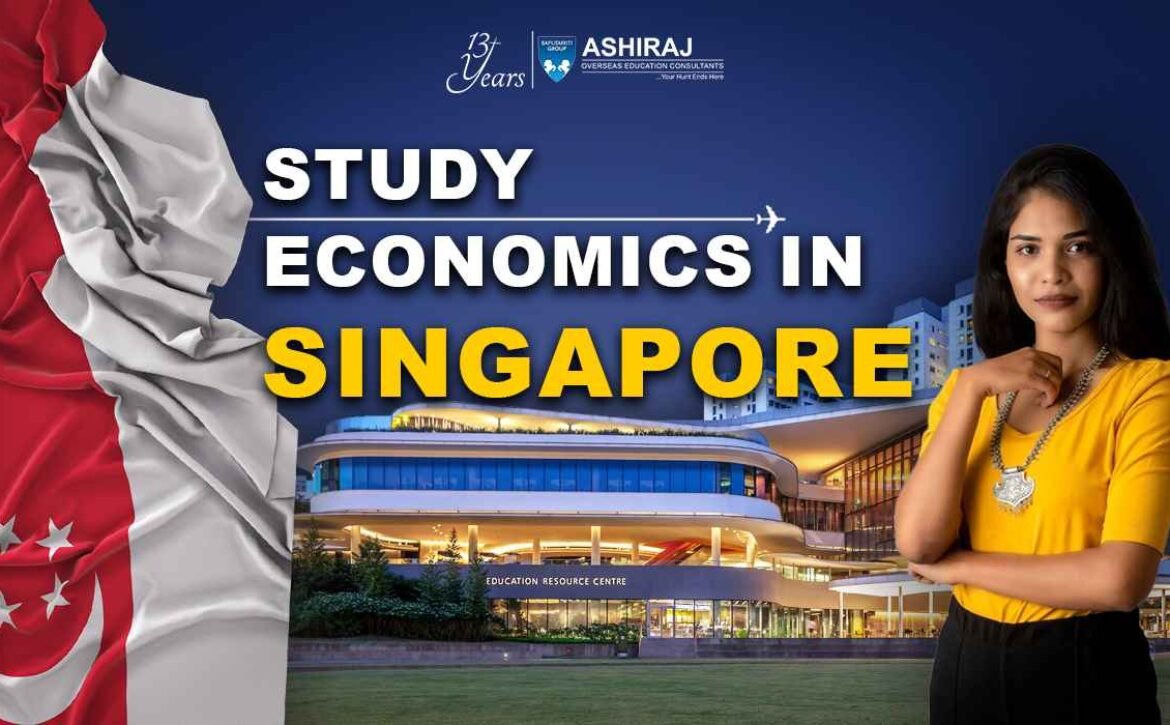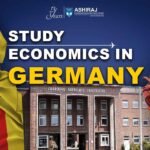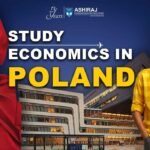
Economics in Singapore
Economics in Singapore is a dynamic subject that encapsulates the intricate interplay between government policies, market forces, and global trends in one of Asia’s most prosperous nations. Renowned for its rapid economic growth and stability, Singapore has emerged as a global hub for finance, trade, and innovation. At the heart of Singapore’s economic success lies its strategic location, efficient infrastructure, and business-friendly environment, making it an attractive destination for multinational corporations and entrepreneurs alike. The city-state’s economic landscape is characterized by a robust free-market economy tempered with proactive government intervention to ensure long-term sustainability and equitable growth.
In examining Economics in Singapore, one must delve into its multifaceted approach towards economic development, which encompasses diversification, innovation, and human capital development. The government’s strategic initiatives, such as the promotion of key industries, investment in education and skills training, and fostering a culture of innovation and entrepreneurship, have played pivotal roles in shaping Singapore’s economic trajectory. Furthermore, Singapore’s commitment to open trade policies, coupled with its efficient regulatory framework and emphasis on transparency, has propelled it onto the global stage as a leading economic powerhouse. Understanding Economics in Singapore entails navigating through its unique blend of market-driven mechanisms and proactive government interventions, all geared towards achieving sustainable growth and prosperity for its citizens.
Why to Study Economics in Singapore?
- Dynamic Economic Environment: Singapore offers a vibrant economic landscape characterized by rapid growth, making it an ideal place to study Economics. Students get firsthand exposure to real-world economic phenomena and trends.
- Global Hub for Finance and Trade: As a leading global hub for finance and trade, Singapore provides unparalleled opportunities for students to understand international economics and trade dynamics. It serves as a living laboratory for studying the complexities of global markets.
- Proactive Government Policies: The Singaporean government’s proactive approach to economic management offers valuable insights for students. They can explore the efficacy of policies such as diversification, innovation incentives, and strategic investments in human capital.
- Rich Cultural Diversity: Singapore’s diverse population and cosmopolitan culture enrich the study of Economics by providing a nuanced understanding of how economic principles intersect with social and cultural dynamics.
- Access to Leading Institutions and Experts: Students studying Economics in Singapore gain access to top-tier educational institutions and renowned experts in the field. This exposure enhances their learning experience and opens doors to networking opportunities.
- Career Opportunities: With its thriving economy and global connectivity, studying Economics in Singapore opens up a wide array of career opportunities in finance, consulting, government, and academia, both locally and internationally.
In conclusion, studying Economics in Singapore offers a unique and enriching educational experience, equipping students with the knowledge and skills to navigate today’s complex economic landscape effectively.
Top Universities to Study Economics in Singapore
University | QS World University Ranking 2023 | Type of University | Average Annual Fees | Programs Offered |
National University of Singapore (NUS) | 11 | Public | $8,000 – $12,000 | – Bachelor of Economics |
– Master of Economics | ||||
– PhD in Economics | ||||
Nanyang Technological University (NTU) | 13 | Public | $7,500 – $11,000 | – Bachelor of Economics |
– Master of Economics | ||||
– PhD in Economics | ||||
Singapore Management University (SMU) | 46 | Private | $14,000 – $18,000 | – Bachelor of Science (Economics) |
– Master of Science in Economics | ||||
– PhD in Economics | ||||
Singapore University of Social Sciences (SUSS) | Not Ranked | Public | $6,500 – $9,000 | – Bachelor of Science in Economics |
– Master of Science in Applied Economics | ||||
– Graduate Diploma in Economics | ||||
Management Development Institute of Singapore (MDIS) | Not Ranked | Private | $12,000 – $16,000 | – Bachelor of Science (Economics) |
– Master of Science in Economics | ||||
– Graduate Diploma in Economics |
Studying Economics in Singapore offers access to top-ranked universities renowned for their quality education and diverse programs. The National University of Singapore (NUS) and Nanyang Technological University (NTU) consistently rank among the top choices, offering comprehensive undergraduate, postgraduate, and doctoral programs in Economics. Singapore Management University (SMU) and Singapore University of Social Sciences (SUSS) provide specialized programs tailored to meet the demands of the modern economy. Additionally, private institutions like the Management Development Institute of Singapore (MDIS) offer alternative pathways for students seeking a career in Economics. With affordable tuition fees and a range of program options, these universities provide a conducive environment for aspiring economists to thrive and excel in their academic pursuits.
Course Curriculum for Economics in Singapore
- Foundational Courses: Economics programs in Singapore typically start with foundational courses covering microeconomics, macroeconomics, and econometrics, providing students with a solid understanding of economic principles and analysis methods.
- Specialized Tracks: Students can choose from various specialized tracks such as international economics, financial economics, or public policy economics, allowing them to tailor their studies to their interests and career aspirations.
- Quantitative Skills Development: The curriculum emphasizes the development of quantitative skills through courses in mathematics, statistics, and data analysis, equipping students with the tools necessary for economic research and analysis.
- Real-World Applications: Many programs incorporate real-world applications and case studies into the curriculum, giving students practical insights into how economic theories are applied in various industries and policy contexts.
- Research Opportunities: Students often have opportunities to engage in research projects or internships, enabling them to apply their knowledge in real-world settings and gain valuable hands-on experience.
- Interdisciplinary Approach: Economics programs in Singapore may also offer interdisciplinary courses, allowing students to explore the intersections between economics and other fields such as politics, sociology, or environmental studies, fostering a holistic understanding of economic issues.
Economics in Singapore offers a comprehensive and interdisciplinary curriculum designed to equip students with the knowledge, skills, and practical experience needed to succeed in today’s dynamic economic landscape.
Eligibility Criteria & Admission Requirements for MS in Economics in Singapore
- English Language Proficiency: Applicants are typically required to demonstrate proficiency in English through standardized tests such as IELTS or TOEFL. A minimum score of 6.5 in IELTS or 90 in TOEFL is commonly accepted.
- Standardized Tests: Most programs require applicants to submit scores from either the GRE or GMAT exams. A competitive score on these tests showcases the applicant’s analytical and quantitative abilities.
- Educational Qualifications: Applicants should hold a bachelor’s degree from a recognized institution, preferably in Economics or a related field. Some programs may accept students with diverse academic backgrounds but may require additional coursework to bridge any gaps.
- Passport & Student Visa: International students must possess a valid passport and obtain a student visa to study in Singapore. The visa application process typically requires proof of acceptance into a recognized educational institution and sufficient financial resources to support oneself during the study period.
- Academic Certificates: Applicants are required to submit transcripts and academic certificates as evidence of their educational qualifications. These documents should be authenticated and translated into English if necessary.
- Work Experience: While not always mandatory, some programs may prefer applicants with relevant work experience, especially for postgraduate studies. Work experience in the field of economics or related industries can strengthen an applicant’s candidacy.
Test | Minimum Score |
IELTS | 6.5 |
TOEFL | 90 |
GRE | 310 |
GMAT | 650 |
Economics in Singapore sets clear eligibility criteria to ensure that students admitted to its programs possess the necessary academic background and language proficiency to succeed in their studies. Meeting these criteria opens doors to a rewarding academic journey in one of Asia’s leading economic hubs.
Documents Required for Studying Economics in Singapore
- Passport: A valid passport is essential for international students applying to study Economics in Singapore. Ensure that your passport has sufficient validity beyond the duration of your intended stay.
- Letters of Recommendation (LOR): Typically, two letters of recommendation from academic or professional referees are required. These letters should attest to your academic abilities, work ethic, and suitability for the program.
- Statement of Purpose (SOP): The SOP provides insight into your motivations, academic goals, and aspirations. It should be well-written, concise, and tailored to the specific program and institution.
- Curriculum Vitae (CV): A comprehensive CV highlighting your academic achievements, extracurricular activities, work experience, and any relevant skills or certifications is necessary.
- Official High School Transcripts and Educational Certificates: Transcripts and certificates from high school or previous academic institutions serve as proof of your educational qualifications. Ensure that these documents are officially authenticated and translated into English if necessary.
- Work Experience Certificate: If applicable, a work experience certificate detailing your employment history, responsibilities, and achievements may be required, especially for postgraduate programs.
- Proof of Financial Resources: To obtain a student visa, you must demonstrate sufficient financial resources to cover tuition fees, living expenses, and other related costs for the duration of your study in Singapore.
Economics in Singapore requires a comprehensive set of documents to assess the eligibility and suitability of applicants for its programs. Ensuring the timely submission of these documents is crucial for a smooth application process and successful admission.
Admission Process for Economics in Singapore
- Research Programs: Begin by researching the available Economics programs offered by universities in Singapore. Consider factors such as program structure, faculty expertise, and campus facilities to narrow down your choices.
- Check Eligibility Criteria: Review the eligibility criteria for each program, including academic requirements, English language proficiency tests (such as IELTS or TOEFL), and standardized test scores (GRE or GMAT).
- Prepare Required Documents: Gather all necessary documents, including transcripts, certificates, letters of recommendation (LOR), statement of purpose (SOP), curriculum vitae (CV), passport, and proof of financial resources.
- Submit Application: Complete the online application form for your chosen program and submit it along with the required documents before the application deadline. Pay attention to any specific instructions provided by the university.
- Wait for Decision: After submitting your application, wait for the university to review your materials. The review process may take several weeks, so be patient. Some universities may conduct interviews as part of the selection process.
- Receive Admission Offer: If your application is successful, you will receive an admission offer from the university. Review the offer letter carefully and follow the instructions for accepting the offer, including any deadlines for tuition deposits.
- Apply for Student Visa: Once you have accepted the admission offer, begin the process of applying for a student visa. Prepare all required documents, including your passport, admission letter, proof of financial resources, and any additional forms required by the Singaporean authorities.
- Arrive in Singapore: Upon receiving your student visa, make travel arrangements to arrive in Singapore before the start of the academic term. Attend orientation sessions and familiarize yourself with campus facilities and student services.
Economics in Singapore offers a structured and straightforward admission process for prospective students, ensuring a smooth transition into their chosen academic programs.
“Education is the most powerful weapon which you can use to change the world.”
Nelson Mandela
Cost of Economics Course in Singapore
- Tuition Fees: The cost of tuition for Economics programs in Singapore varies depending on the university and level of study. On average, undergraduate tuition fees range from SGD 8,000 to SGD 12,000 per year for local students and SGD 15,000 to SGD 25,000 per year for international students.
- Living Expenses: Singapore is known for its high cost of living, including accommodation, food, transportation, and other daily expenses. Budget approximately SGD 750 to SGD 1,500 per month for living expenses, depending on your lifestyle and accommodation choices.
- Additional Costs: Additional expenses may include textbooks, study materials, health insurance, visa fees, and extracurricular activities. Plan ahead and budget for these costs to avoid financial strain during your studies.
- Scholarship Opportunities: Many universities in Singapore offer scholarships and financial aid to deserving students, including both local and international applicants. Research scholarship options and apply for relevant opportunities to offset some of the costs of studying Economics.
- Part-Time Work: International students in Singapore are allowed to work part-time during their studies, which can help supplement their income and cover expenses. However, it’s essential to balance work commitments with academic responsibilities.
Economics in Singapore presents a competitive but manageable cost of studying, with various options available to mitigate expenses and ensure a fulfilling academic experience.
Scholarships for Economics Courses in Singapore
Scholarship Name | Amount | Application Deadline |
Singapore Government Scholarships | Full tuition | Varies |
stipend | ||
NUS Undergraduate Scholarships | Up to SGD 15,000 | March 1st |
NUS Graduate School Scholarships | Full tuition | December 15th |
stipend | ||
NTU Scholarships | Up to SGD 20,000 | Varies |
SMU Scholarships | Up to SGD 25,000 | April 15th |
ASEAN Undergraduate Scholarship (AUS) | Full tuition | Varies |
stipend | ||
Singapore International Graduate Award | Full tuition | January 1st |
(SINGA) | monthly stipend |
Economics in Singapore offers various scholarships to support students pursuing studies in the field. These scholarships, provided by universities and the Singaporean government, cover tuition fees and may include additional stipends to assist with living expenses. Application deadlines vary depending on the scholarship, so it’s crucial for prospective students to research and plan accordingly. Scholarships like the Singapore Government Scholarships and NUS Graduate School Scholarships offer full tuition coverage along with monthly stipends, providing substantial financial support for students. Additionally, opportunities such as the ASEAN Undergraduate Scholarship and the Singapore International Graduate Award (SINGA) are available to both local and international students, further enhancing accessibility to quality education in Economics in Singapore.
Career Opportunities After Economics in Singapore
Job Profile | Average Salary (SGD) |
Economist | 70,000 – 120,000 |
Financial Analyst | 60,000 – 100,000 |
Investment Analyst | 70,000 – 130,000 |
Policy Analyst | 65,000 – 110,000 |
Market Research Analyst | 55,000 – 90,000 |
Data Analyst | 60,000 – 100,000 |
Economic Consultant | 80,000 – 150,000 |
Bank Officer | 50,000 – 80,000 |
Economics in Singapore opens up a myriad of career opportunities with competitive salaries across various sectors. Economists play a crucial role in analyzing economic trends, conducting research, and providing insights to government agencies, financial institutions, and businesses, with salaries ranging from SGD 70,000 to SGD 120,000 per year. Financial analysts and investment analysts utilize their economic expertise to analyze financial data and make informed investment decisions, earning between SGD 60,000 to SGD 130,000 annually. Policy analysts contribute to the development and evaluation of government policies, earning salaries ranging from SGD 65,000 to SGD 110,000. Market research analysts and data analysts use economic principles to analyze market trends and consumer behavior, with salaries ranging from SGD 55,000 to SGD 100,000. Economic consultants provide expert advice to businesses and government organizations, earning salaries between SGD 80,000 to SGD 150,000. Bank officers handle financial transactions and customer services, earning salaries ranging from SGD 50,000 to SGD 80,000 per year. With a strong foundation in economics, graduates in Singapore can pursue diverse and rewarding career paths with promising salary prospects.
Frequently Asked Questions About Economics in Singapore
Some top universities in Singapore offering Economics programs include the National University of Singapore (NUS), Nanyang Technological University (NTU), and Singapore Management University (SMU).
Eligibility criteria typically include holding a bachelor’s degree, demonstrating English language proficiency through tests like IELTS or TOEFL, and submitting GRE or GMAT scores.
Yes, many universities and the Singaporean government offer scholarships to support Economics students. These scholarships cover tuition fees and may include additional stipends for living expenses.
The cost varies depending on the university and program level. On average, tuition fees range from SGD 8,000 to SGD 25,000 per year for international students, with additional expenses for living and other costs.
Graduates can pursue careers as economists, financial analysts, investment analysts, policy analysts, market research analysts, data analysts, economic consultants, and bank officers, among others, with competitive salaries across various sectors.
Yes, international students are allowed to work part-time during their studies in Singapore, which can help supplement their income and cover expenses.
The application process typically involves researching programs, checking eligibility criteria, preparing required documents, submitting the application online, waiting for a decision, accepting the offer, applying for a student visa, and arriving in Singapore.
Yes, applicants are required to demonstrate proficiency in English through tests like IELTS or TOEFL, with minimum score requirements set by each university.
The duration varies depending on the level of study. Undergraduate programs typically take three to four years to complete, while postgraduate programs may range from one to two years.
The job market is robust, with ample opportunities in government agencies, financial institutions, businesses, research organizations, and consulting firms, offering diverse career paths and growth potential for Economics graduates.




